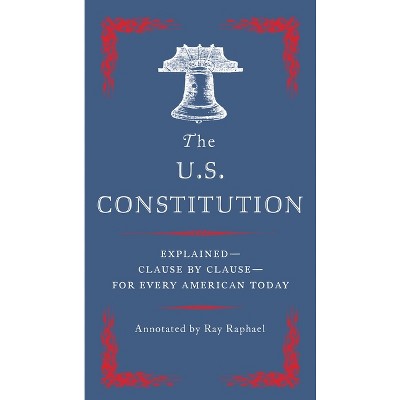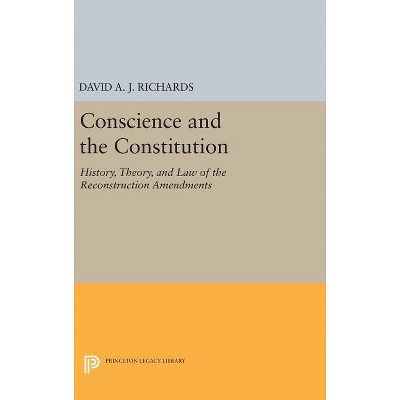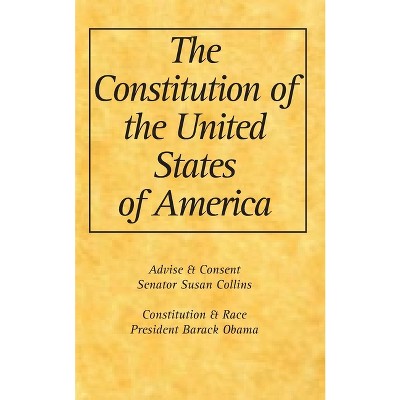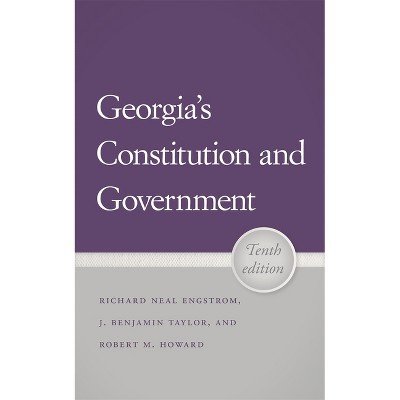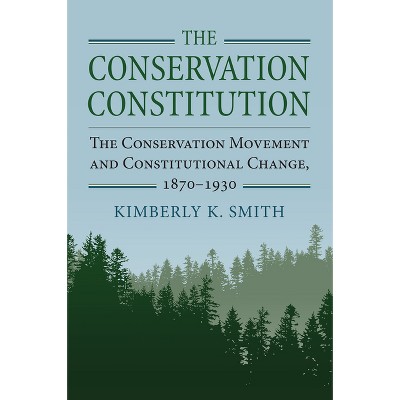Why the Russian Constitution Matters - by William Partlett

$29.95 when purchased online
Target Online store #3991
About this item
Highlights
- This book challenges the common view that the Russian Constitution is a sham or a reflection of Russia's authoritarian past.
- About the Author: William Partlett is Associate Professor at Melbourne Law School, Australia.
- 272 Pages
- Freedom + Security / Law Enforcement, Constitutional
Description
Book Synopsis
This book challenges the common view that the Russian Constitution is a sham or a reflection of Russia's authoritarian past.
It instead shows that the Russian Constitution was a product of the constitutional 'dark arts', an increasingly common constitutional practice that seeks to guarantee liberal democracy and individual rights in a system of highly centralised power. Over time in Russia, the centralisation of power in the president has undermined the constitution's democratic and rights protections. This Russian experience matters for three reasons. First, it shows that Russian authoritarianism is neither the personal creation of Vladimir Putin nor a natural reflection of Russian history. It is instead the product of a centralised constitutional system. A democratic Russia is possible but requires more than just Putin leaving office - it also requires breaking with Russia's constitutional commitment to centralisation. Second, it demonstrates the role that the constitutional dark arts play in populist authoritarianism around the world. In these contexts, centralisation allows one office to claim popular legitimacy and dominate politics while (generally falsely) also claiming to respect individual rights and democracy. Third, it reveals that democratic constitutions are more than legal texts enforced in court. They are more fundamentally political texts that create a balanced state with political checks on the centralisation of political power. These checks and balances do not just limit state power and protect rights; they also enable the state to better understand and advance the general well-being of its citizens. This book therefore provides critical guidance to those involved in building democracy in a post-Putin Russia. It is also important to those seeking to better understand the role that constitutions play in shaping both authoritarian and democratic politics.Review Quotes
"[William] Partlett provides a clear and accessible account of Russia's recent constitutional history ... this is a book that even those who are uninterested in Russia should read, it speaks to a range of important topics in constitutional scholarship and, by virtue of its focus on Russia, does so in novel and valuable ways." --Nicholas Barber, Professor of Constitutional Law and Theory at the University of Oxford, UK, Comparative Constitutional Studies
"How does Vladimir Putin retain power? Through charisma, coercion, corruption-and a constitution! Will Partlett shows that the Russian constitution matters to sustaining the power centralized in Putin's presidential office by adding legal authority to other power bases. Partlett offers us more than a detailed study of the constitutional centralization of power in Russia's presidency. He takes on an important argument in political theory for centralized power as a vehicle for promoting the public good while preserving democratic rights, by overcoming the toned down versions of Hobbes's war against all that are manifested in some pluralist political systems, immobilized by petty disagreements among power-seeking politicians. Partlett argues that, though the centralizers are sometimes correct in their diagnoses of their polities' problems, their prescription runs high risks of degenerating into mere authoritarianism, risks manifested in Russia's post-1989 experience from Boris Yeltsin though Putin. Partlett does an important service to the field of comparative constitutional law, and liberal political theorys by placing the case for centralized power back on the table even as he ends up severely criticizing it." --Mark Tushnet, William Nelson Cromwell Professor of Law Emeritus, Harvard Law School, USA "Partlett's book is a masterpiece that will significantly shape understanding of Russian constitutional law and politics, the role of law in autocratisation and democratisation, and the nature of constitutions. It will have a far-reaching and lasting impact. It could not be more timely, given the growing effects of Russian authoritarianism and the rise and resilience of authoritarianism worldwide. The book is written in beautiful and accessible language, and I highly recommend it to you all." --Cora Chan, Professor at Hong Kong University Faculty of Law and Director of the Centre for Comparative and Public LawAbout the Author
William Partlett is Associate Professor at Melbourne Law School, Australia.Dimensions (Overall): 8.5 Inches (H) x 5.5 Inches (W) x .56 Inches (D)
Weight: .69 Pounds
Suggested Age: 22 Years and Up
Sub-Genre: Constitutional
Genre: Freedom + Security / Law Enforcement
Number of Pages: 272
Publisher: Hart Publishing
Format: Paperback
Author: William Partlett
Language: English
Street Date: September 19, 2024
TCIN: 93664650
UPC: 9781509972197
Item Number (DPCI): 247-05-4506
Origin: Made in the USA or Imported
Shipping details
Estimated ship dimensions: 0.56 inches length x 5.5 inches width x 8.5 inches height
Estimated ship weight: 0.69 pounds
We regret that this item cannot be shipped to PO Boxes.
This item cannot be shipped to the following locations: American Samoa (see also separate entry under AS), Guam (see also separate entry under GU), Northern Mariana Islands, Puerto Rico (see also separate entry under PR), United States Minor Outlying Islands, Virgin Islands, U.S., APO/FPO
Return details
This item can be returned to any Target store or Target.com.
This item must be returned within 90 days of the date it was purchased in store, shipped, delivered by a Shipt shopper, or made ready for pickup.
See the return policy for complete information.
Trending Business & Law Books


$10.99 - $19.71
MSRP $19.99 - $30.00
Save $5 when you spend $25 on select books
4.8 out of 5 stars with 24 ratings

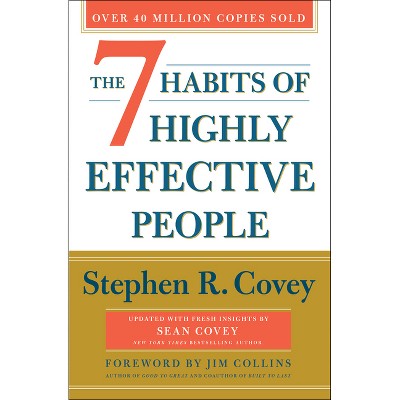

$20.98
MSRP $29.99
Save $5 when you spend $25 on select books
1 out of 5 stars with 1 ratings

